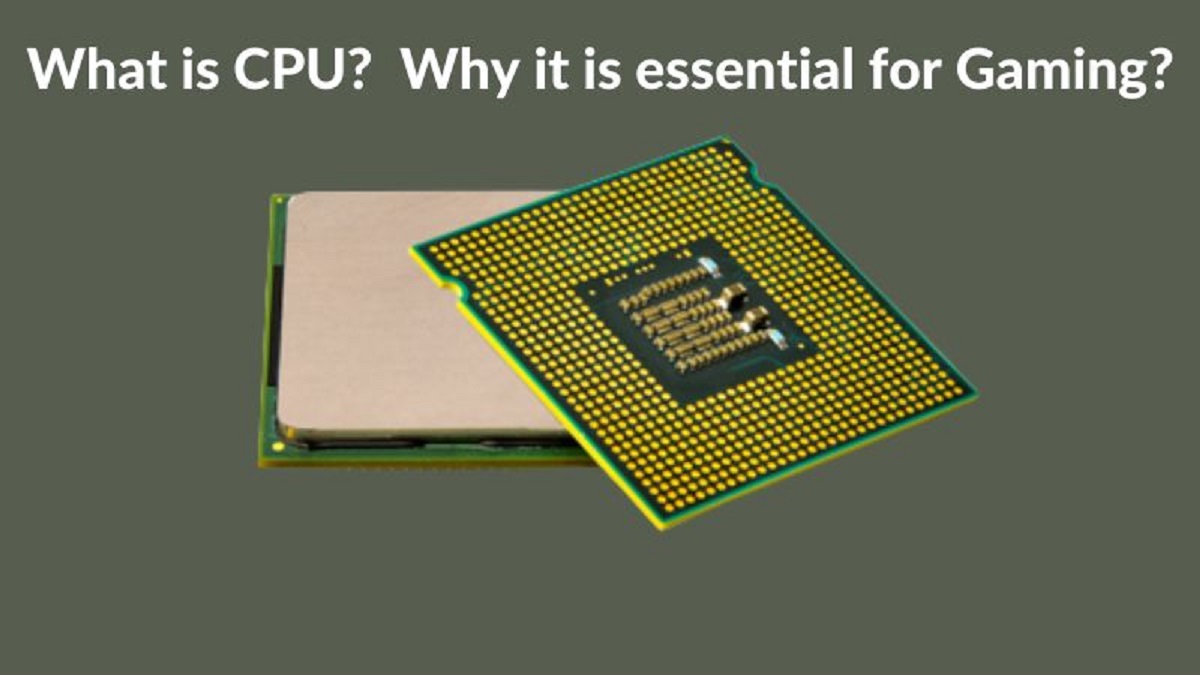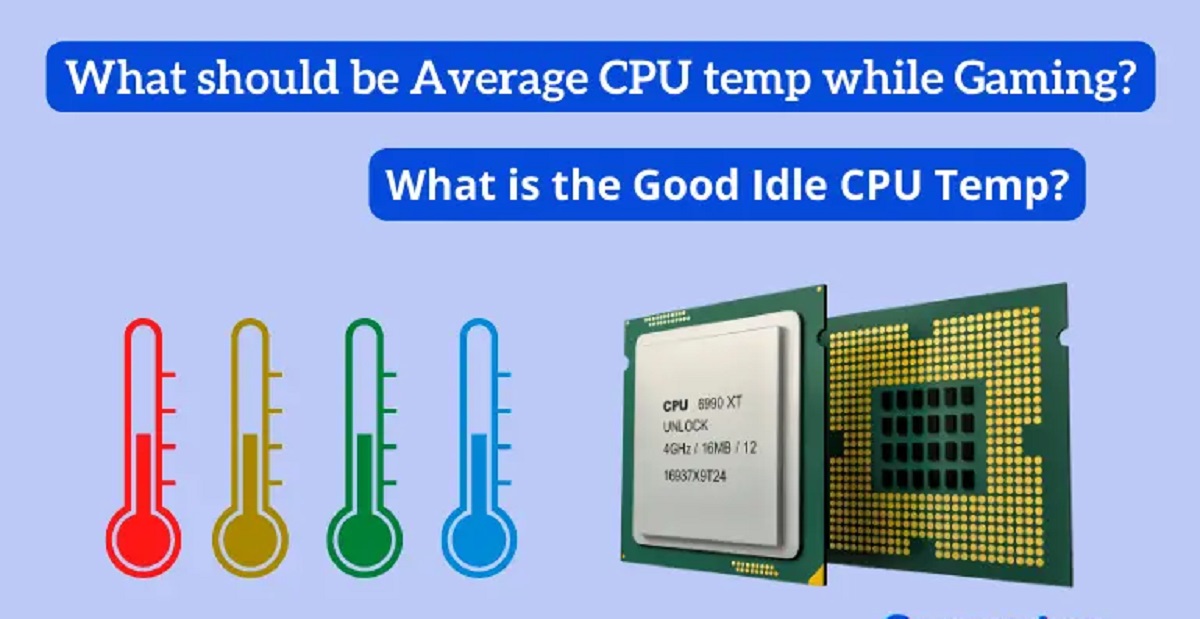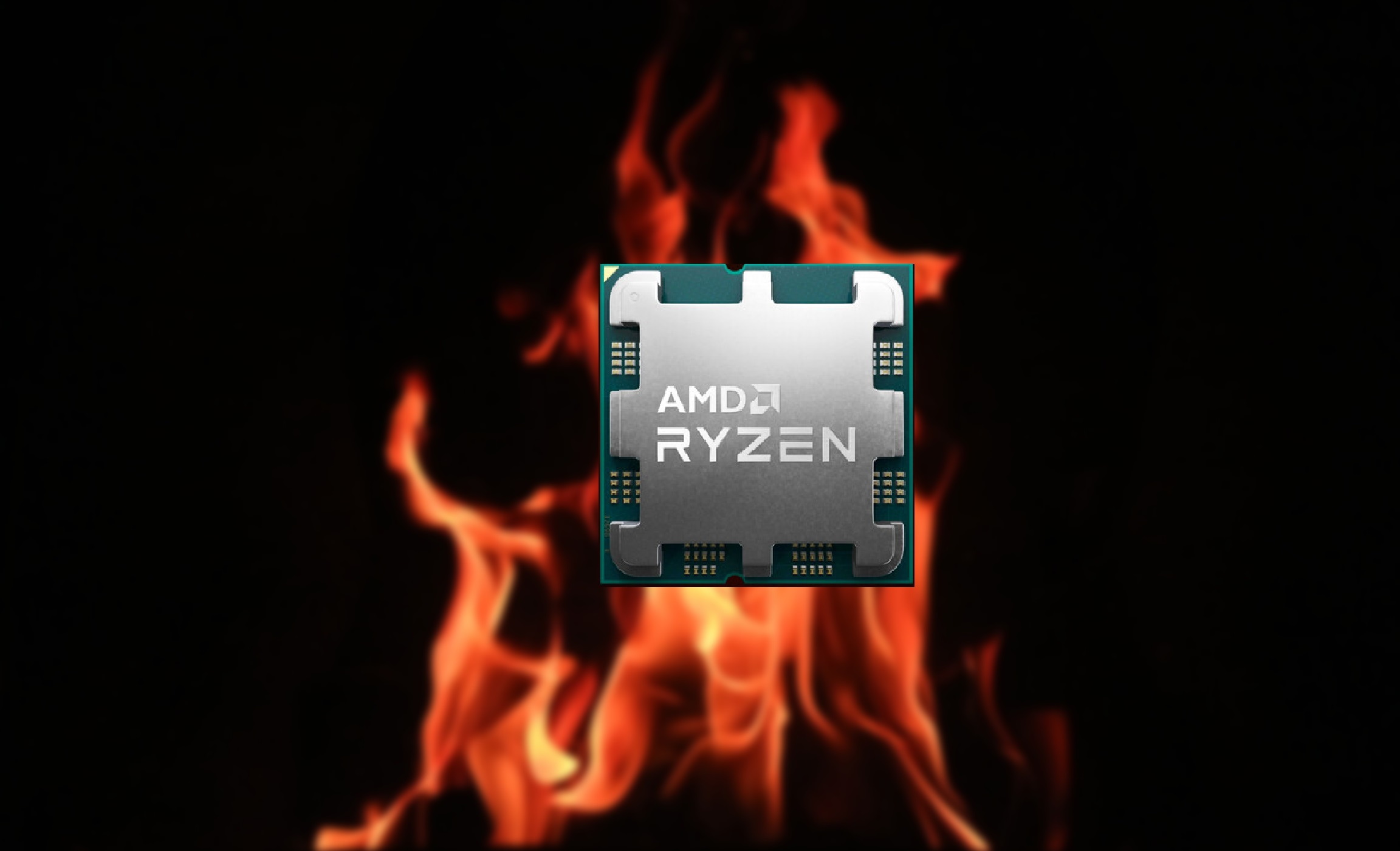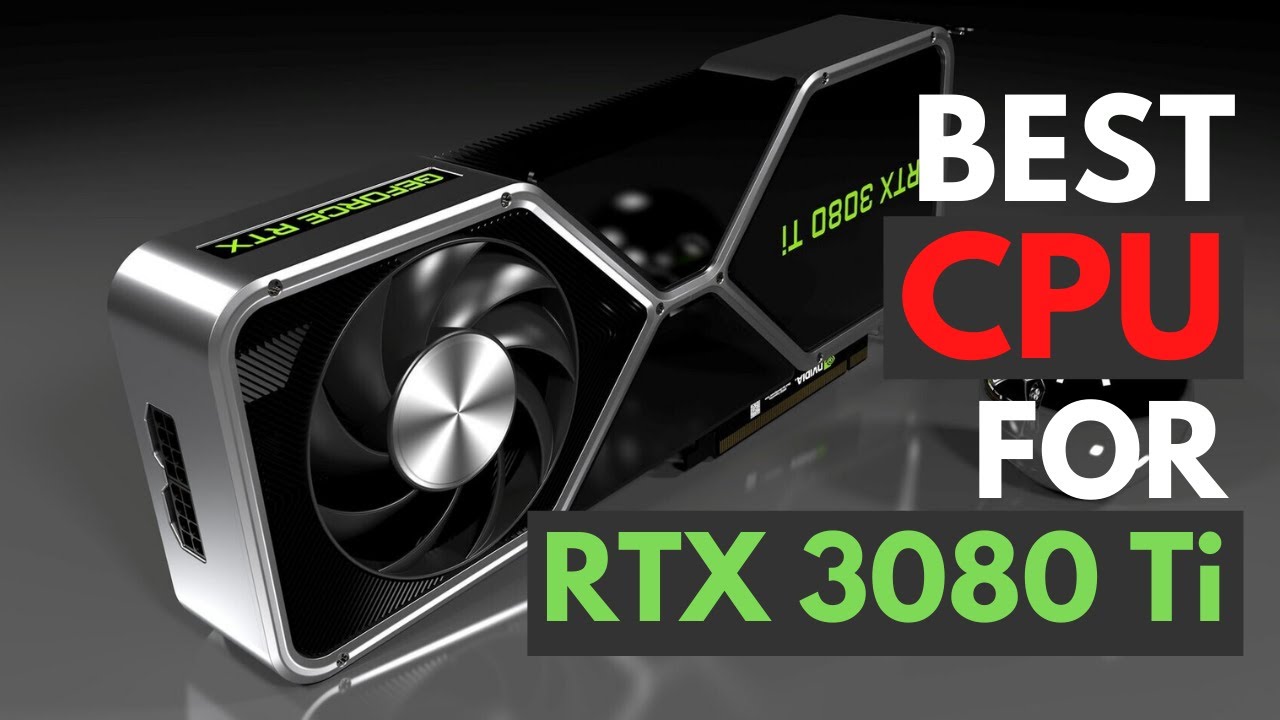Introduction
When it comes to gaming, there are many factors that contribute to an immersive and enjoyable experience. From top-of-the-line graphics cards to responsive keyboards, gamers invest in a myriad of peripherals to enhance their gameplay. However, one crucial component that often goes unnoticed is the CPU, or Central Processing Unit.
A CPU is essentially the brain of a computer, responsible for executing instructions and performing calculations. While it may not have the flashy appeal of a high-end graphics card, the CPU plays a vital role in determining a game’s performance. In fact, it’s the CPU that handles various tasks such as artificial intelligence, physics simulations, and game logic.
In this article, we will explore the significance of a CPU in gaming and shed light on its importance in providing a seamless gaming experience. We will also delve into the ongoing debate of CPU versus GPU (Graphics Processing Unit) and discuss which component holds more weight when it comes to gaming performance.
Furthermore, we will examine how the CPU affects gaming performance and discuss what aspects to consider when choosing a CPU specifically for gaming purposes. Additionally, we will touch upon the concept of overclocking and whether a high-end CPU is necessary for an optimal gaming experience.
By the end of this article, you will have a comprehensive understanding of the role of a CPU in gaming and be equipped with the knowledge to make an informed decision when selecting a CPU for your gaming setup.
What is a CPU?
Before we dive into the importance of a CPU in gaming, let’s first understand what a CPU is and how it functions. CPU, or Central Processing Unit, is the primary component responsible for executing instructions and performing calculations in a computer system. It can be considered the brain of the computer, as it carries out the necessary tasks to make the computer function properly.
The CPU consists of a combination of circuits, control units, and registers that work together to process and execute instructions. It fetches instructions from the computer’s memory, decodes them, and then executes the respective operations. This process happens at an incredibly fast pace, measured in cycles per second, or Hertz (Hz).
A CPU is made up of several key components, including the arithmetic logic unit (ALU), the control unit, and the cache. The ALU is responsible for performing arithmetic and logical operations, while the control unit coordinates the overall operation of the CPU. The cache, on the other hand, is a small but high-speed memory storage that allows the CPU to quickly access frequently used data.
CPUs come in different configurations and variations, depending on the manufacturer and intended purpose. Some CPUs have multiple cores, which can handle multiple threads and tasks simultaneously, while others have a single core. Additionally, CPUs have different clock speeds, which determine how quickly they can process instructions. Higher clock speeds generally result in faster performance.
Overall, the CPU is a critical component of any computer system, as it handles a wide range of operations, from basic calculations to complex data manipulations. Without a CPU, a computer would be unable to perform even the simplest tasks, let alone run demanding applications like video games.
In the next section, we will delve into the specific role of a CPU in the context of gaming and explore its influence on gaming performance.
The Role of a CPU in Gaming
While graphics cards often take the spotlight in discussions about gaming performance, the CPU plays a crucial role in ensuring a smooth and responsive gaming experience. The CPU is responsible for handling a variety of tasks that directly impact gameplay, making it a vital component in any gaming setup.
First and foremost, the CPU is responsible for running the game itself. It executes the game’s instructions, processes game logic, and handles the AI (Artificial Intelligence) routines of non-player characters (NPCs) in the game world. This means that the CPU is involved in determining the behavior and actions of computer-controlled characters, making it essential for the overall immersion and realism of the game.
In addition to running the game, the CPU also manages various background processes that occur simultaneously during gaming sessions. These processes include operating system tasks, background applications, antivirus software, and more. A capable CPU can handle these tasks efficiently, allowing for seamless multitasking while gaming.
Furthermore, the CPU plays a crucial role in physics calculations within games. Physics engines simulate realistic physical behavior, such as gravity, collisions, and object interactions. The CPU’s processing power is necessary to perform these complex calculations and ensure accurate and realistic physics simulations.
Another aspect of gaming that relies heavily on the CPU is the loading and streaming of game assets. When transitioning between different game areas or levels, the CPU manages the loading of textures, models, and other assets into the memory, ensuring a consistent and uninterrupted gaming experience. Similarly, when streaming open-world games, the CPU handles the continuous loading and unloading of game assets as the player moves throughout the game world.
In multiplayer games, the CPU also contributes to network communication. It processes data related to network traffic, including sending and receiving information between players, updating game states, and maintaining a smooth online gaming experience.
Overall, the CPU plays a vital role in gaming by running the game, handling background processes, managing physics calculations, loading game assets, and facilitating network communication. Without a capable CPU, even the most powerful graphics card would be limited in its ability to deliver a smooth and immersive gaming experience.
In the next section, we will explore the debate of CPU versus GPU and discuss which component carries more weight when it comes to gaming performance.
CPU vs GPU: Which is More Important for Gaming?
When discussing gaming components, the CPU and GPU (Graphics Processing Unit) are often the subject of debate. Both are essential for optimal gaming performance, but they serve different functions and have different areas of influence.
The CPU is primarily responsible for executing instructions, handling game logic, and managing various processes in the gaming environment. It plays a key role in running the game itself and managing background tasks, as mentioned earlier. In contrast, the GPU focuses on rendering and displaying graphics. It handles the processing and rendering of images, textures, and visual effects, allowing for visually stunning graphics and smooth frame rates.
While both the CPU and GPU are important, their significance depends on the type of game being played. For games that heavily rely on physics simulations, AI routines, and complex calculations, the CPU plays a more significant role. Games with detailed open-world environments, numerous NPCs, and dynamic physics interactions will benefit from a powerful CPU.
On the other hand, games that prioritize graphics and visual fidelity, such as AAA titles with high-resolution textures and advanced lighting effects, benefit more from a high-end GPU. The GPU’s processing power and dedicated graphics memory allow for smooth rendering of visually demanding elements, resulting in a visually immersive gaming experience.
When it comes to multiplayer gaming, the CPU and GPU both play crucial roles. The CPU handles network communication, ensuring smooth online interactions, while the GPU ensures smooth rendering of other players’ characters and visual effects in multiplayer environments.
It’s important to note that the CPU and GPU work together in harmony to deliver optimal gaming performance. While the GPU takes on the heavy lifting in terms of graphics processing, it still relies on the CPU to provide the necessary instructions and manage the game environment. A well-balanced combination of a capable CPU and GPU will provide the best overall gaming experience.
In the next section, we will explore in more detail how the CPU affects gaming performance and what factors to consider when selecting a CPU for gaming purposes.
How Does the CPU Affect Gaming Performance?
The performance of a CPU has a significant impact on gaming performance, as it directly influences the speed and responsiveness of the gaming experience. A powerful CPU can ensure smooth gameplay, faster loading times, and overall improved game performance.
One of the primary ways in which the CPU affects gaming performance is through its clock speed. Clock speed refers to the number of cycles per second that the CPU can execute. A higher clock speed allows the CPU to process instructions more quickly, resulting in faster computation and better overall performance. This means that a CPU with a higher clock speed can handle more complex calculations and instructions, leading to smoother gameplay and faster game loading times.
In addition to clock speed, the number of CPU cores also influences gaming performance. CPUs with multiple cores can handle multiple tasks simultaneously, which is especially beneficial for modern games that utilize multithreading. Multithreading allows the game to distribute its workload across multiple CPU cores, resulting in improved performance and responsiveness. Games that feature complex physics simulations, AI routines, and advanced graphics can take advantage of multiple CPU cores to deliver a smoother gaming experience.
The CPU’s cache is another aspect that affects gaming performance. The cache is a small but extremely fast memory storage located on the CPU. It stores frequently used data and instructions, allowing for quick access without having to go all the way to the computer’s main memory. A larger cache size can result in reduced memory latency and faster data retrieval, which can significantly improve gaming performance.
The architecture of the CPU also plays a role in gaming performance. The CPU architecture determines how efficiently the processor can execute instructions and process data. More advanced CPU architectures often provide better performance, improved power efficiency, and enhanced gaming capabilities.
Lastly, it is crucial to consider the compatibility between the CPU and other hardware components in a gaming system. The CPU must be compatible with the motherboard, memory, and graphics card to ensure optimal performance. Additionally, having enough RAM (Random Access Memory) is essential, as it allows for smoother multitasking and faster data access, ultimately contributing to improved gaming performance.
Overall, a powerful CPU with a high clock speed, multiple cores, a sufficient cache, and efficient architecture will have a significant impact on gaming performance. By considering these factors and ensuring compatibility with other hardware components, gamers can create a well-balanced system that delivers smooth and enjoyable gameplay experiences.
In the next section, we will discuss what factors to consider when selecting a CPU specifically for gaming purposes.
What to Look for in a Gaming CPU?
When selecting a CPU for gaming, there are several factors to consider to ensure optimal gaming performance. Here are some key aspects to look for:
1. Clock Speed: A higher clock speed will result in faster processing and improved game performance. Look for CPUs with higher base clock speeds or consider ones that offer turbo boost technology for even higher speeds during demanding tasks.
2. Number of Cores and Threads: Games are becoming increasingly multithreaded, so having a CPU with multiple cores and threads can provide a noticeable performance boost. Consider CPUs with at least four cores, preferably with hyperthreading technology for better multitasking capabilities.
3. Cache Size: A larger cache size allows the CPU to store frequently accessed data and instructions, reducing memory latency and improving performance. Look for CPUs with ample cache to ensure smooth gameplay.
4. CPU Architecture: The latest CPU architectures often offer improved performance and power efficiency. Research the latest generations of CPUs and choose one that offers better gaming capabilities.
5. Compatibility: Check the compatibility of the CPU with your motherboard and other hardware components. Ensure that the CPU socket type matches your motherboard and that the chipset supports the CPU’s features.
6. Overclocking Potential: If you are interested in overclocking your CPU, ensure that the CPU you choose has good overclocking potential. Some CPUs are unlocked and designed for overclocking, allowing you to push their performance even further.
7. Thermal Design Power (TDP): Consider the CPU’s TDP, which indicates its power consumption and heat generation. A lower TDP means that the CPU runs cooler and consumes less power, resulting in better energy efficiency and potentially quieter operation.
8. Price and Budget: Set a budget for your CPU and compare prices among different models to find the best value for your money. Determine how much you are willing to spend while considering your gaming requirements.
Taking these factors into account and conducting thorough research will help you choose a CPU that meets your gaming needs and provides an optimal balance of performance, compatibility, and value for your gaming setup.
In the next section, we will explore the concept of overclocking and its potential to boost CPU performance for gaming.
Overclocking: Boosting CPU Performance for Gaming
Overclocking is the process of increasing a CPU’s clock speed beyond its default specifications to achieve higher performance. It is a popular practice among gaming enthusiasts looking to squeeze every bit of power out of their CPUs and maximize gaming performance.
By overclocking, gamers can potentially achieve higher frame rates, faster load times, and overall smoother gameplay. Overclocking essentially allows the CPU to handle more instructions and calculations per second, resulting in improved gaming performance.
However, it’s important to note that overclocking carries some risks and considerations. The primary concern is increased heat generation and power consumption. When overclocking a CPU, it will run at higher temperatures and draw more power, which can lead to stability issues and potential damage if not managed properly.
To successfully overclock a CPU for gaming, several factors need to be taken into account:
CPU Cooling: Proper cooling is essential when overclocking a CPU. With increased clock speeds, the CPU generates more heat. Using an efficient cooling solution, such as a high-performance CPU cooler or liquid cooling, helps maintain lower temperatures and ensures stability during overclocking.
Power Supply: A reliable and capable power supply unit (PSU) is necessary when overclocking. The increased power demands of an overclocked CPU should be supported by a PSU with adequate wattage and stable voltage delivery to prevent instability or damage.
Motherboard Capability: The motherboard plays a crucial role in overclocking, as it provides the necessary features and settings to adjust the CPU’s clock speed and voltage. Look for a motherboard with good power delivery and overclocking capabilities, including a robust BIOS or UEFI interface for fine-tuning settings.
CPU Quality: Not all CPUs are created equal, even within the same model. Some CPUs have better overclocking potential due to better silicon quality. It is worth researching and checking user reviews or forums to identify CPUs that are known for their overclocking capabilities.
Stability Testing: After overclocking, it is essential to thoroughly test the stability of the system. Stress-testing applications, such as Prime95 or AIDA64, can help verify the stability of the CPU under increased clock speeds and ensure that the system is functioning reliably.
Overclocking should be approached with care, as it may void the warranty of the CPU and potentially lead to hardware damage if not done correctly. It is recommended to start with small and gradual overclocking increments while monitoring temperatures and stability. Overclocking should only be attempted by experienced users who understand the risks involved and are willing to spend the time fine-tuning settings to achieve stable performance.
In the next section, we will discuss whether a high-end CPU is necessary for an optimal gaming experience.
Is a High-End CPU Necessary for Gaming?
One common question that arises among gamers is whether a high-end CPU is necessary for an optimal gaming experience. While there is no one-size-fits-all answer to this question, it ultimately depends on several factors, including the type of games you play, your desired graphics settings, and your budget.
For mainstream gaming, a high-end CPU may not be necessary. Many popular games are designed to run smoothly on mid-range CPUs, as they tend to rely more on the graphics card for performance. If you primarily play less demanding or older titles, a mid-range CPU will likely suffice and provide a satisfactory gaming experience.
However, if you delve into more demanding games, such as AAA titles with advanced graphics and realistic physics simulations, a high-end CPU can make a difference. These games often require more CPU processing power to handle the complex calculations and AI routines involved. A high-end CPU with multiple cores and higher clock speeds can ensure that these games run smoothly and deliver optimal performance.
Furthermore, if you engage in content creation or other CPU-intensive tasks alongside gaming, a high-end CPU can be advantageous. Activities such as video editing, rendering, streaming, and running virtual machines can benefit from the additional processing power and multitasking capabilities of a high-end CPU.
It’s also worth considering future-proofing your gaming setup. While a mid-range CPU may be sufficient for current games, future releases may have higher CPU requirements as game developers push the boundaries of technology. Investing in a high-end CPU can provide a more robust platform that can handle upcoming games with ease and extend the longevity of your gaming system.
However, it is essential to balance performance with budget considerations. High-end CPUs often come with a significant price premium, and the cost-effectiveness of investing in a top-tier CPU depends on your specific gaming needs and financial situation. In many cases, a well-chosen mid-range CPU paired with a powerful graphics card can deliver a compelling gaming experience without breaking the bank.
Ultimately, the decision of whether a high-end CPU is necessary for gaming depends on your expectations, the types of games you play, and your budget constraints. It’s important to assess your specific requirements and find the right balance between CPU performance and other components to create a gaming setup that meets your needs.
In the next section, we will conclude our discussion and summarize the key takeaways regarding the importance of a CPU in gaming.
Conclusion
As we conclude our discussion on the importance of a CPU in gaming, it’s clear that the CPU plays a vital role in delivering a smooth and immersive gaming experience. While often overshadowed by flashy graphics cards, the CPU is responsible for executing instructions, managing game logic, and performing calculations that directly impact gameplay.
We explored how the CPU handles tasks such as AI routines, physics simulations, and game loading, highlighting its significance in delivering realistic game behavior, accurate physics interactions, and seamless transitions between game areas or levels.
We also discussed the debate of CPU versus GPU and concluded that both components are crucial for gaming performance. While the CPU focuses on executing instructions and managing game environment, the GPU handles graphics rendering and display, working together to provide an optimal gaming experience.
Understanding how the CPU affects gaming performance, we highlighted the importance of clock speed, number of cores, cache size, and CPU architecture in determining the processing power and capabilities of a gaming CPU. We also emphasized the importance of compatibility with other hardware components and the need to consider factors like overclocking potential and thermal design when selecting a CPU for gaming purposes.
Furthermore, we addressed the question of whether a high-end CPU is necessary for gaming, discussing how it depends on factors such as the type of games played, desired graphics settings, and budget. While mainstream gaming can often be handled by mid-range CPUs, demanding games and CPU-intensive tasks may benefit from the additional processing power provided by high-end CPUs.
In conclusion, a well-balanced gaming system requires a capable CPU that can handle the game’s instructions, manage background processes, and contribute to overall gaming performance. However, the ideal CPU choice varies for each individual, depending on their gaming preferences, budget, and futureproofing considerations.
By considering all these factors and finding the right balance between CPU performance, compatibility, and budget, gaming enthusiasts can create a setup that ensures a smooth, responsive, and enjoyable gaming experience.

























